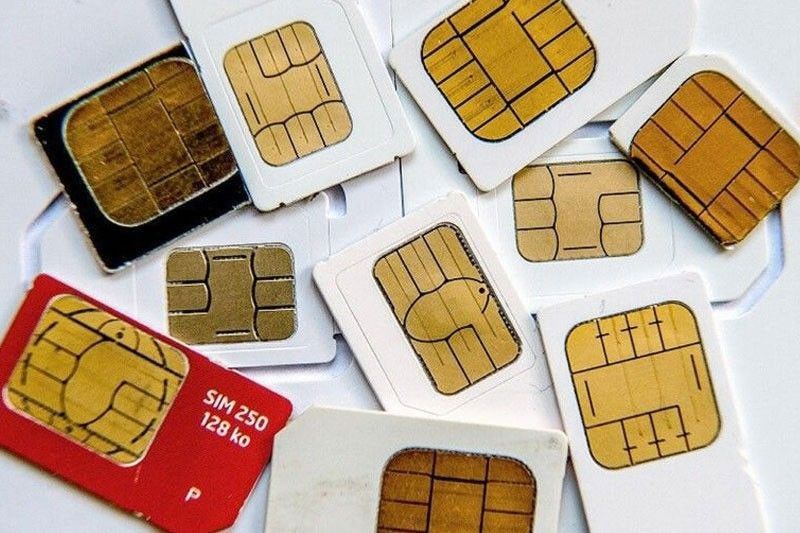House panel OKs mandatory SIM card registration bill

MANILA, Philippines — The House of Representatives’ committee on information and communications technology yesterday approved anew the consolidated measure requiring the registration of all postpaid and prepaid mobile phone subscriber identity module (SIM) cards.
Navotas Rep. Toby Tiangco, who chairs the panel, approved the consolidation of several bills under House Bill 14 that Speaker Martin Romualdez filed, the exact version of which was approved in the 18th Congress but was not enacted into law.
Deputy Speaker and Pampanga Rep. Aurelio Gonzales Jr. moved for the consolidation of several measures on SIM card registration authored by Reps. Sandro Marcos of Ilocos Norte, Eric Yap (Benguet), LRay Villafuerte (Camarines Sur), Rufus Rodriguez (Cagayan de Oro City), Yedda Romualdez and Jude Acidre both of Tingog party-list, among others.
Albay Rep. Joey Salceda invoked Rule 10, Section 48 in swiftly approving the consolidated bill that authorizes House committees to dispose of priority measures already filed and approved on third reading in the immediately preceding Congress.
At present, only SIM cards for postpaid mobile or cellular phone subscriptions are required to be registered.
The refiled and consolidated bill seeks to require ownership registration of SIM cards to eradicate mobile phone-aided criminal activities.
Under HB 14, every public telecommunications entity (PTE) or authorized seller shall require an end-user to accomplish and sign in triplicate a numbered registration form issued by the PTE.
The form shall include an attestation that the person appearing before the seller is the same person who accomplished the document and that he presented valid identification cards.
The PTE or its authorized seller shall not sell a SIM card if the end-user refuses to comply with the registration requirement, which will also apply to foreigners.
The form shall indicate the subscriber’s name, date of birth, gender, his address as appearing in a valid ID with photo and the assigned mobile number and serial number.
Any information in the registration document shall be treated as absolutely confidential, unless access to it is granted by the subscriber in writing.
Such information, however, shall be disclosed upon order by a court or written request by a law enforcement agency in relation to an investigation of an unlawful act involving the use of a mobile number.
SIM cards sold or issued before the effectivity of the proposed SIM Card Registration Act will also be required to be registered.
PTEs shall maintain a registry of all subscribers and their assigned SIM cards. They shall submit to the National Telecommunications Commission a list of their authorized sellers/agents.
If the offense is committed by a PTE, the president and other responsible officers shall be held liable and fined up to P300,000 for the first offense, up to P500,000 for the second offense and up to P1 million for the third and any succeeding violation.
If the violator is an authorized seller, his operation shall be suspended and a fine of P5,000 to P50,000 shall be imposed.
If the offender is an officer or employee of an implementing agency, he shall be dismissed from the service and fined, without prejudice to the filing of appropriate criminal, civil and administrative charges.
Meanwhile, Quezon Rep. Keith Micah Tan has filed his own proposal to mandate SIM card registration, citing the prevalence of text scams and other mobile phone-aided criminal activities.
Tan said solving the issue is difficult because it is so easy to change a SIM card and no identity is left behind in the one that was used to commit a crime.
Through HB 2819 or the proposed act to eradicate mobile phone-aided terrorism and criminal activities, mandating the ownership of the registration of all SIM cards for cellular phones will suppress these kinds of bad activities, according to the lawmaker.
He explained through his bill, there will be a registry or database of validated information of those who will buy and own SIM cards.
Tan said this was also the step taken by Singapore, Malaysia, Indonesia, Brunei and other countries that succeeded in its implementation.
“Like them, we can also suppress this type of crime. That’s why we want this proposal to be approved and enacted for the security and safety of every Filipino,” he added.
- Latest
- Trending


























